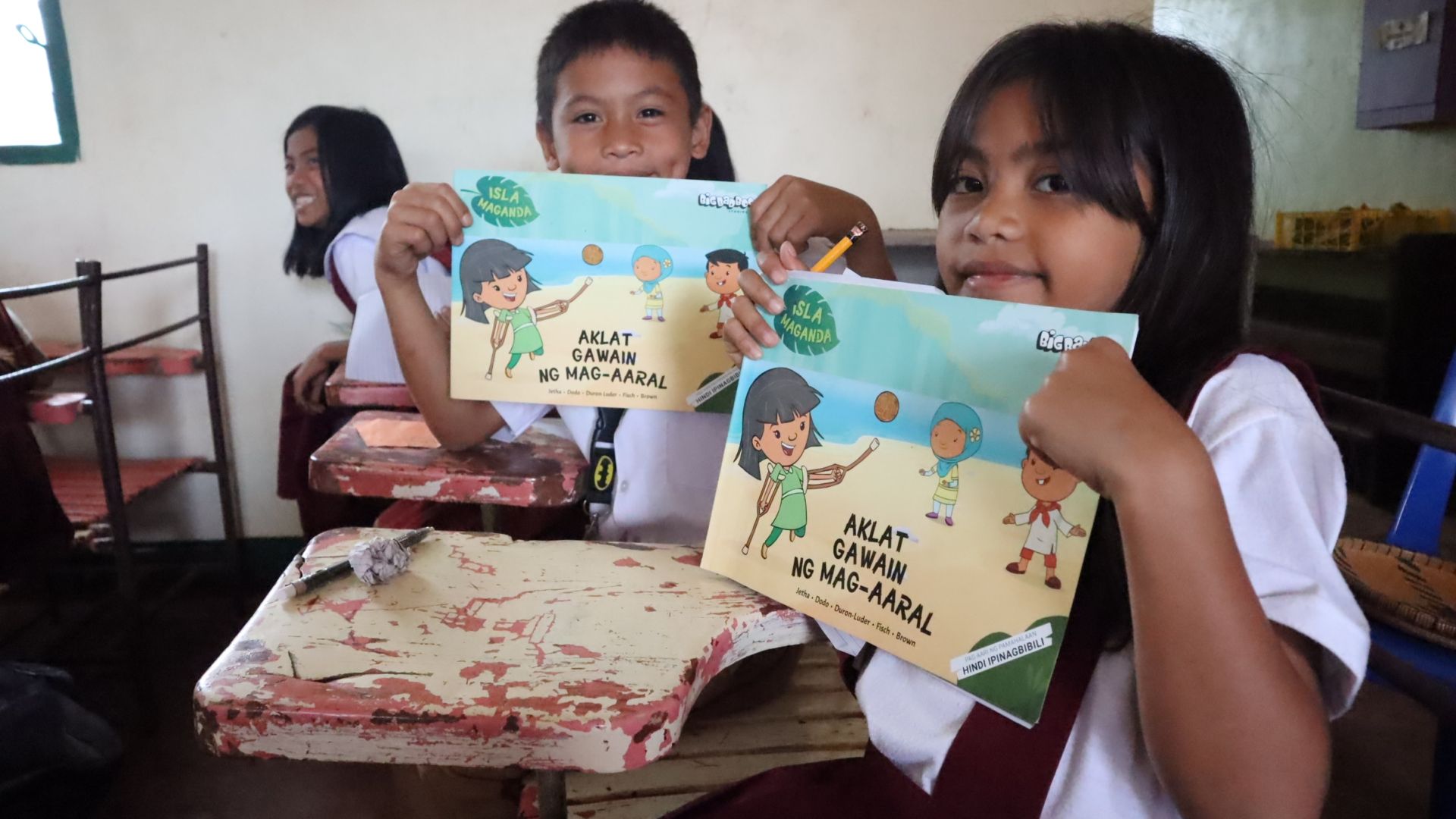In a remote Bangsamoro village, children sit captivated as Isla Maganda, brings to life a world where resilience, collaboration, and problem-solving are learned alongside foundational skills. Now, 90,000 children are learning these essential skills through a world-class animation and audio series rooted in Bangsamoro’s cultural values. In classrooms equipped with devices, children have already watched the series an average of 2-3 times, and a total of 99,527 workbooks have been distributed, providing engaging hands-on activities to reinforce their learning.

The Bangsamoro Government, in partnership with the Australian Government, introduced Isla Maganda, the first program in Bangsamoro to integrate 21st-century skills and Social and Emotional Learning (SEL) into early education. Isla Maganda reaches children in remote and disadvantaged areas, helping them build the skills they need for lifelong learning. To date, 546 public elementary schools, learning centers, Indigenous Peoples Education (IPED) implementing schools, Special Education (SPED) Centers, and madaris (Islamic schools) across six provinces have benefited from this initiative.
To strengthen teachers’ capacities and address learning gaps, 2,622 teachers have been trained and provided with the animated series’ teacher’s guide and children’s workbooks.
Low literacy rates have persistently challenged the Bangsamoro region, driven by barriers in access, quality, and inclusion, leading to widespread disparities. The region has the lowest literacy rates among 17 regions in the Philippines, and according to the Ministry of Basic, Higher, and Technical Education’s (MBHTE) 2021 Activity Baseline Results, most Grades 1 to 3 students perform below expected standards.
Isla Maganda aims to bridge this gap by delivering engaging, culturally relevant learning through animation and audio storytelling. This 20-episode series for Kindergarten to Grade 3 (K-3) learners strengthens literacy, numeracy, and peace education, while embedding core Bangsamoro values such as respect, honesty, and empathy. Developed over four years, it is a collaborative effort uniting government partners, international production teams, local talents, and education experts.
MBHTE Minister Mohagher M. Iqbal affirmed the importance of Isla Maganda’s rollout to schools across BARMM, including remote and conflict-affected areas.
“Many young learners grow up in conflict-affected or geographically remote areas, where access to quality and inclusive education is inconsistent, having a detrimental impact on their learning and future opportunities.”
“I commend the efforts of MBHTE, the Australian Government, DepEd, and education leaders across the country for their dedication to delivering quality, inclusive education to children in BARMM through Isla Maganda. Now, more young learners will gain the essential skills they need to excel in their learning, empowering children, strengthening communities, and building a future of peace and prosperity for our region.”
The Australian Embassy worked closely with MBHTE to provide technical assistance in developing Isla Maganda materials, ensuring they are tailored to the Bangsamoro context and designing teacher training programs to support their seamless integration into classrooms.
Each episode of Isla Maganda, part of the 21st Century Skills and Social and Emotional Learning (SEL) curriculum, is accompanied by lesson plans for teachers provided by MBHTE, ensuring its effective integration into the broader education curriculum across BARMM.

Ma. Socorro Tabuga, a teacher at Lapok Elementary School in Shariff Aguak, Maguindanao, was among the first to introduce Isla Maganda to her Kindergarten students in February. After completing a three-day master training course on using Isla Maganda classroom materials and facilitating discussions on key concepts, she was eager to see how her students would react.
“Isla Maganda is helping my students develop important skills like empathy, self-control, and cooperation. Since introducing the series, I’ve noticed a positive change in the way they interact, and there’s less fighting. They identify with the characters they like and adopt their traits, which has led to better interaction, teamwork, and problem solving,” she shared.
Isla Maganda is also accessible to everyone through its dedicated YouTube channel (www.youtube.com/@IslaMaganda), enabling more children, even those outside the region, to engage with the series, develop foundational skills, and build a pathway to academic success and contribute to lasting peace.





